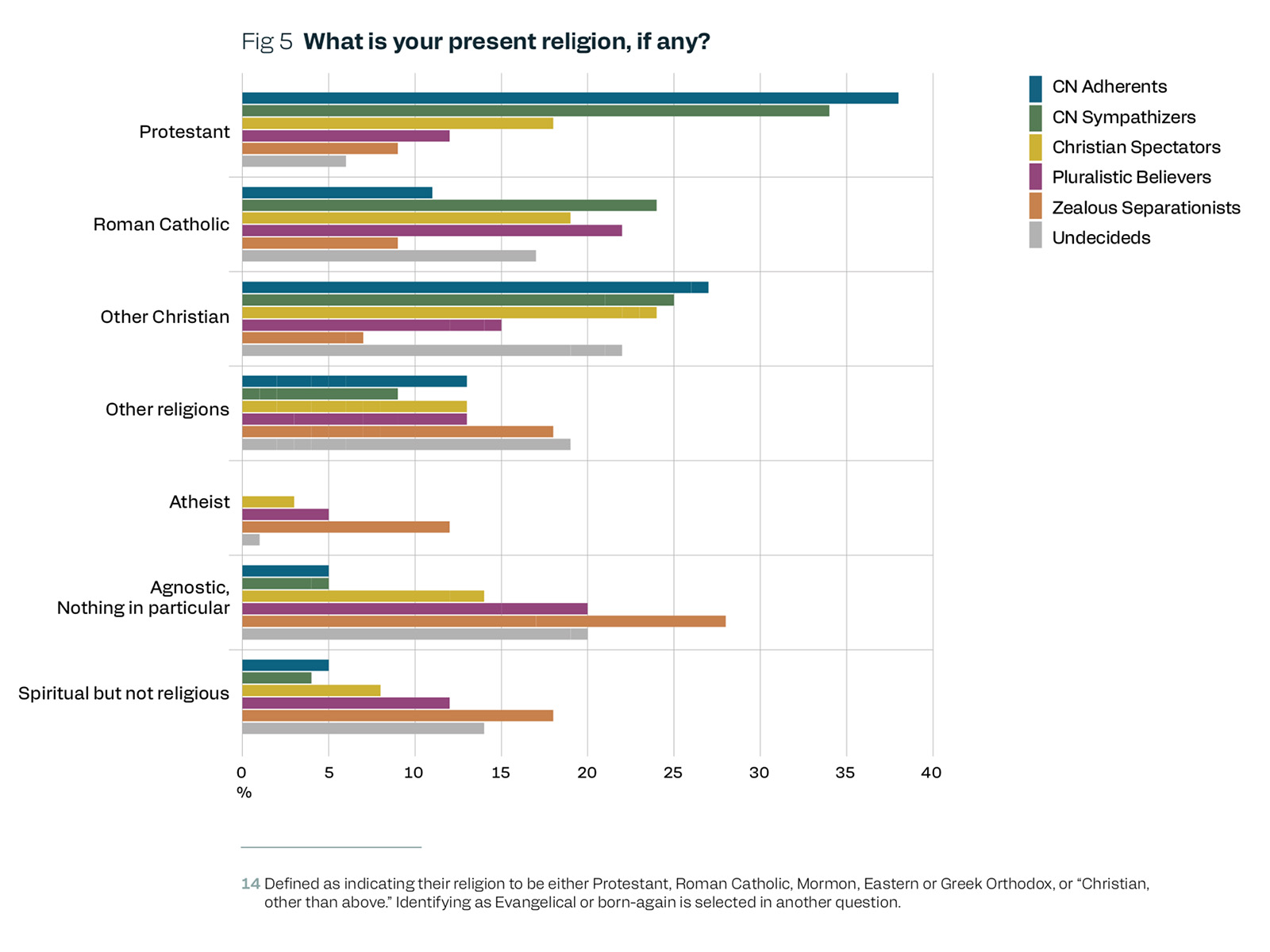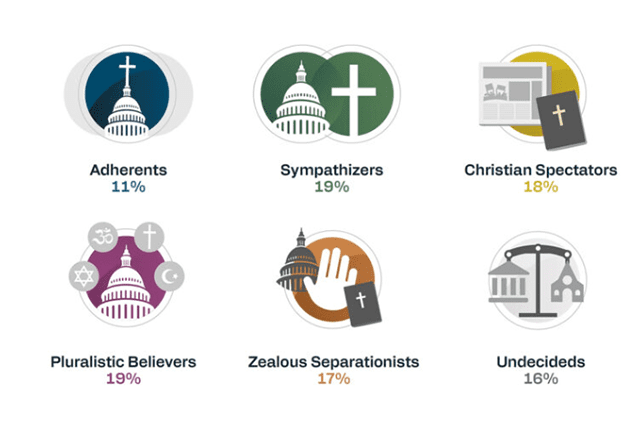Christian nationalist adherents, researchers found, were the most likely to express the highest preference for a “strong leader who does not have to deal with Congress and elections” (37%), and more than half said the opposing party “lack(s) the traits to be considered fully human — they behave like animals.” According to the study, adherents and sympathizers also “exhibit a tendency to dislike many outgroups, and prefer their government to favor Christianity over other faiths,” with adherents in particular favoring the idea of having Christian clergy review and advise on laws (59%) and having “America’s Judeo-Christian founding explicitly established in the Constitution” (49%).

“What is your present religion, if any?” (Graphic courtesy
Neighborly Faith)
The study also offers an unusually detailed profile of Christian nationalists. Adherents are 70% non-Hispanic white, for instance, and have the largest concentration of evangelical Christians (71%). Among those who sympathize with Christian nationalist ideas, 60% say they are evangelicals, and adherents were also more likely to be married than others in the survey, by 62% to 49%.
Nonreligious individuals — those who said they were atheists, agnostics, nothing in particular, spiritual but not religious or “something else” — were the best represented among the Zealous Separationists — those who oppose fusions of church and state — comprising 65% of that group. Separationists also exhibited comparatively high levels of political participation, whether in protests or voter registration drives.
Christian nationalist adherents and sympathizers, however, were only a few points behind separationists in political participation and collectively outnumber them (adherents and sympathizers collectively represent 30% of the population nationally, whereas separationists represent 17%). Roughly half of adherents also reported having shifted their buying habits due to a social or political issue, the highest of any group.
Christian nationalist adherents and sympathizers were also the most likely to say they voted for former President Donald Trump in 2020 and also more likely to have voted at all (67% and 68%, respectively) compared to other groups. Separationists voted at 64%, however, and showed the highest support for any specific candidate (61% said they voted for President Joe Biden).
As for party affiliation, around 17% of the Republicans or those who lean Republican were classified as Christian nationalist adherents, with an additional 30% marked as sympathizers and 21% Christian Spectators. On the Democratic side, 30% were Zealous Separationists, 25% Pluralistic Believers and 15% were Christian Spectators.
Neighborly Faith partnered with Technites for the survey, which was conducted between June 16 and June 21, 2023. It polled 2,006 U.S. adults and an oversample of 303 evangelical youth ages 18 to 25 for a total of 2,309 respondents.
This article originally appeared here.

